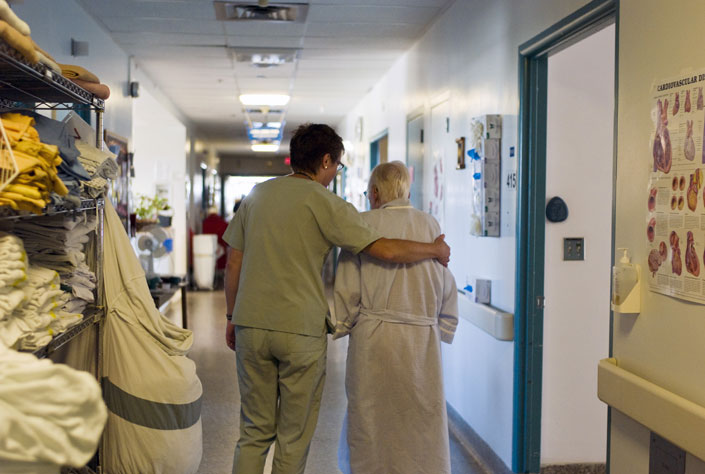Health Equity Initiative: Solutions for the Underserved
Donor funding supports healthcare inclusion and empowerment through innovative collaboration
The Health Equity Initiative, is a partnership of the Victoria Hospitals Foundation (VHF), Island Health, and the Victoria Foundation’s Community Grant Program. It supports patient-focused, solutions-oriented research aimed at addressing and alleviating the persistent health inequities affecting vulnerable populations on Vancouver Island. Through health-based research activities, Island Health-led teams of researchers, clinicians, community organizations, and affected patient groups collaborate to identify and examine the most urgent and persistent challenges facing vulnerable populations, and devise solutions to improve inclusive healthcare delivery for underserved Vancouver Island residents.
Underserved groups can include:
- Low-Income Individuals
- Indigenous and Racialized Populations
- Youth & Seniors
- LGBTQ+ Individuals
- Rural Communities
Health Equity research is inclusive, collaborative, and responsive. It focuses on understanding and addressing disparities in health outcomes among diverse populations while adapting to both longstanding and emerging health challenges. By continuously incorporating community feedback, it adjusts strategies to improve health outcomes for marginalized populations.
The Health Equity Research Grant is awarded every fall to projects that innovate towards meaningful impact for underserved groups and meet Island Health’s standards for equity, inclusion, and stakeholder engagement.
Some current projects include:
Preventing Seclusion for Young Adults in Inpatient Mental Health
Allie Slemon (University of Victoria) and Tasha Mckelvey (Island Health)
75% of mental illnesses first present by age 24. However, mental health inpatient admissions are traumatizing for many young adults, especially when they face seclusion: confinement in an isolated locked room, usually to manage acute risk of violence or harms. In the spring of2023, RJH opened a Young Adult Mental Health Inpatient Unit to support young adults (17to 26) who are experiencing severe mental health challenges. This project brings together researchers and Island Health leaders with peers and young people who have lived experience of seclusion. Together, they will identify strategies for preventing seclusion while ensuring that any changes are equitable and grounded in the voices of those most affected.
Integrating Mental Health and Substance Use Supports for Residents in Long-term Care
Amy Salmon (University of British Columbia) and Amanda Leddy (Island Health)
Long-term care (LTC) provides 24-hour care, accommodation, and hospitality to adults with complex medical and cognitive health issues. While most LTC residents have traditionally been older adults living with complex health conditions such as dementia and frailty, a growing number of younger people with developmental, brain injury, and mental health and substance use needs are living in or waitlisted for LTC homes. The Summit, a LTC home in Victoria, has developed a specialized care unit for people who do not fit the traditional LTC resident profile. The unit is currently home to 32 people, many of whom have a history of precarious housing or homelessness and complex mental health and substance use issues. Through this innovative care model, residents can access services rarely or never available in other LTC homes, such as harm reduction supplies, prescribed safer supply, and opioid agonist therapy. This project will engage and explore the perspectives of those residents, enhancing services to better meet their needs and improve their experience.
Thank you to the Victoria Foundation for their generous support of this initiative.






